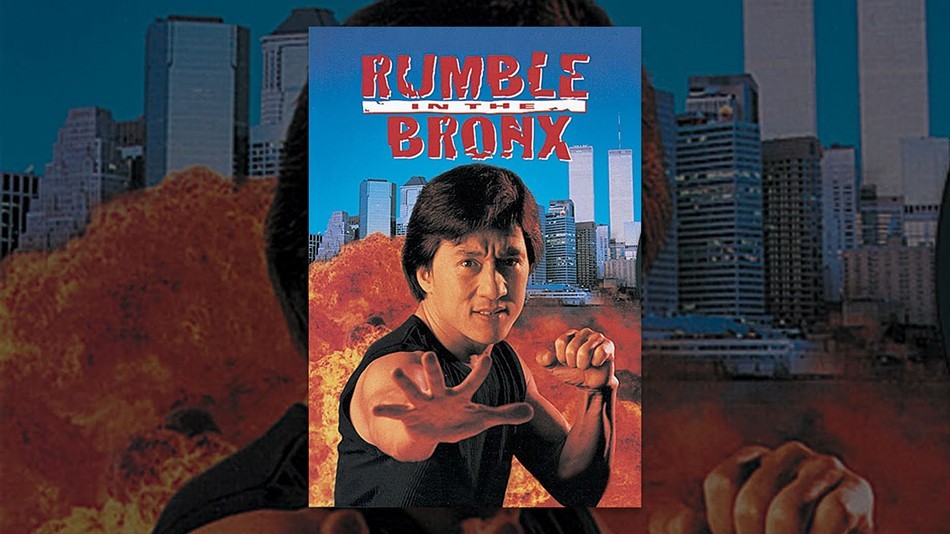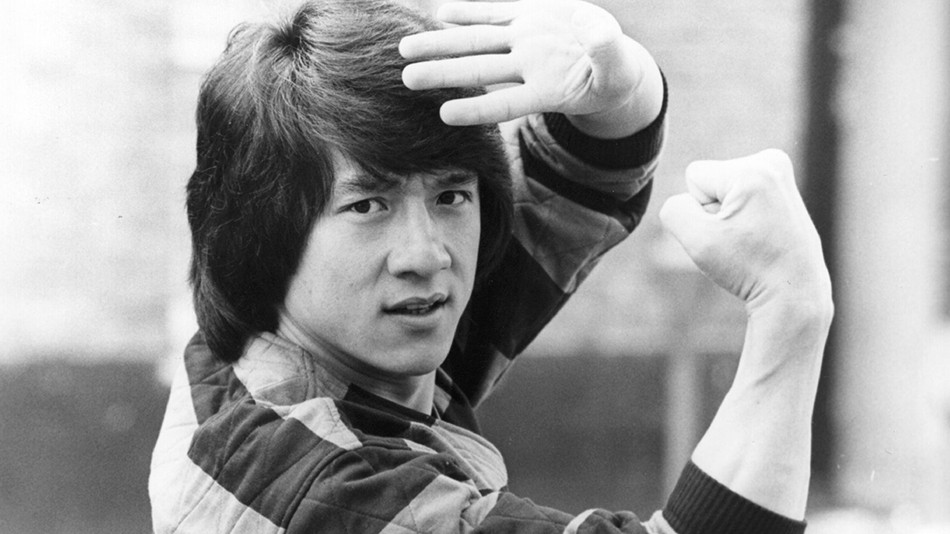
Rumble in the Bronx (1995), a.k.a. the end of the classic action movie genre

Before 1995, action movies were pretty much slugfests and shoot-em-ups. The action formula was tried and true: a guy with (a military/a police/a kickboxing) back story finds himself battling (a terrorist/false charges/the head of a large business conglomerate/a kingpin/a killer) and must (fight/shoot) his way out the situation, all while saving a (buxom/hot/smart and hot) woman who doesn’t like him at first but does a complete 180 before the climax of the third act.
Very few action movies diverted from this formula, that is until the U.S. was finally introduced to Jackie Chan in 1995 with Rumble in the Bronx. With it, a new action formula was introduced to the masses and the classic action genre died with it.
Action goes international

In 1995, the international box office wasn’t really like it is today. Film companies weren’t relying on China and Japan to boost box office grosses. Sure, the international rights to many American movies were sold to add a little bit to the bottom line, but box office grosses were measured in U.S. dollars.
Action movies were some of the most prominent movies to have a major impact on the worldwide box office. With limited dialog they were easy and cheap to overdub, and who doesn’t like action movies? Thinks blow up, people get shot, the good guy wins. Those are things that translate everywhere.
By the mid-1990s, Sylvester Stallone, Bruce Willis and Arnold Schwarzenegger were household names all over the world, and they had paychecks to match. At the same time, American audiences were eating up action movies starring traditional action stars like Steven Seagal and Jean-Claude Van Damme, as well as action-ish movies like The Net, Virtuosity, Johnny Mnemonic, Bad Boys and Kiss of Death.
They all had one thing in common – they we all very American films. If you wanted anything with some real kick, you had to head to the video store or watch The Movie Channel late at night. There, you might find movies starring Sammo Hung, Cynthia Rothrock, Don “The Dragon” Wilson, Cat Sassoon, Michelle Yeoh and, of course, Jackie Chan. This was about to change.
Welcome to Canada … I mean New York
In October of 1994, Rumble in the Bronx began filming in Vancouver, Canada, about two months before Jean-Claude Van Damme’s Street Fighter was set to be released. The film had a modest budget, about $7.5 million, and starred Jackie Chan – a star of Hong Kong cinema whose career spanned back to the early 1960s. Despite this, Chan had never been formally introduced to American audiences (he did appear in Cannonball Run I & II, but those movies don’t really count).
Chan had a unique screen style. He was funny, charming and acrobatic. His stunt scenes were the stuff of legend – especially amongst videophiles whose combed through video stores in search of hidden gems. He would literally bleed (or break bones) for his art. He was an international star – except in America.
His movies weren’t your typical shoot-em ups, they were masterful displays of stunt coordination and athleticism. He was not the usual action star by American standards. He didn’t deliver one liners. He didn’t slowly lumber with a big machine gun. He didn’t snap necks. He wasn’t a big, muscly guy. Maybe that’s why movie producers didn’t see him as a good fit for American audiences. They were wrong.
The day the action movie died, and was reborn
Two years later, after already proving itself a massive hit in Hong Kong (earning almost $57 million), Rumble in the Bronx was released in American theaters. Earning $34 million, it was a hit. Suddenly, Jackie Chan was everywhere.
Films from his existing catalog (Supercop, Legend of Drunken Master, Twin Dragons, Mr. Nice Guy, First Strike and more) were acquired, re-edited, and re-released for American audiences. Action junkies couldn’t get enough. This is the star they were looking for – someone who was not only an action hero on screen, but a guy who DID HIS OWN CRAZY STUNTS! He jumped off buildings, hung off helicopters, climbed walls, swam with the sharks, and fought opponents with strength and agility that had never been seen before.
Jackie Chan created a new action genre, and at the same time killed off old one. If you scroll through the box office receipts from some of the biggest action stars, you can see there is a definite line. There’s before Jackie Chan and After Jackie Chan. For example:
Jean-Claude Van Damme: Street Fighter earned $99 million in 1994, The Quest earned $57 million in 1996.
Sylvester Stallone: Judge Dredd earned $113 million in 1995, Copland earned $64 million in 1997 (1996’s Daylight fared better, earning $160 million with an $80 million budget).
Arnold Schwarzenegger: True Lies earned $378.9 million in 1994, while Eraser earned $242 million in 1996.
Steven Seagal: Under Siege 2: Dark Territory earned $104 million in 1994, while The Glimmer Man earned $20 million in 1996.
What changed?
After getting a taste of Jackie Chan, audiences simply expected more from their action heroes. A big guy with a big gun no longer cut it. Heroes needed to be stronger, faster, more athletic, and be likeable. Enter Jason Statham, Jet Li, Michelle Yeoh, Chow Yun Fat – stars that gave audiences what they craved – real physical action.
These stars, with the exception of Statham, who were once regulated to the video store shelves were now driving the box office, while the tried and true American action stars were forced to release their big budget actioners direct-to-video. It was a major shift, but one that in hindsight wasn’t totally unexpected.
I love Rumble in the Bronx. I remember seeing it in the theater thinking, “who the hell is this guy, and how can he do that?” I also remember watching Sudden Death around the same time, and even though I was a huge JCVD fan (and still am), it just didn’t do it for me anymore.
After Jackie Chan, action just wasn’t the same.
Article by Eric LaRose – a Wisconsin-based connoisseur of action, horror and sci-fi movies from the ‘80s and ‘90s. A former journalist and podcaster, Eric wrote the ending to the Toxic Avenger Part 4, but the only person who will back up that claim is his wife.
Let us know what you what you think in the comments or on our Facebook page!